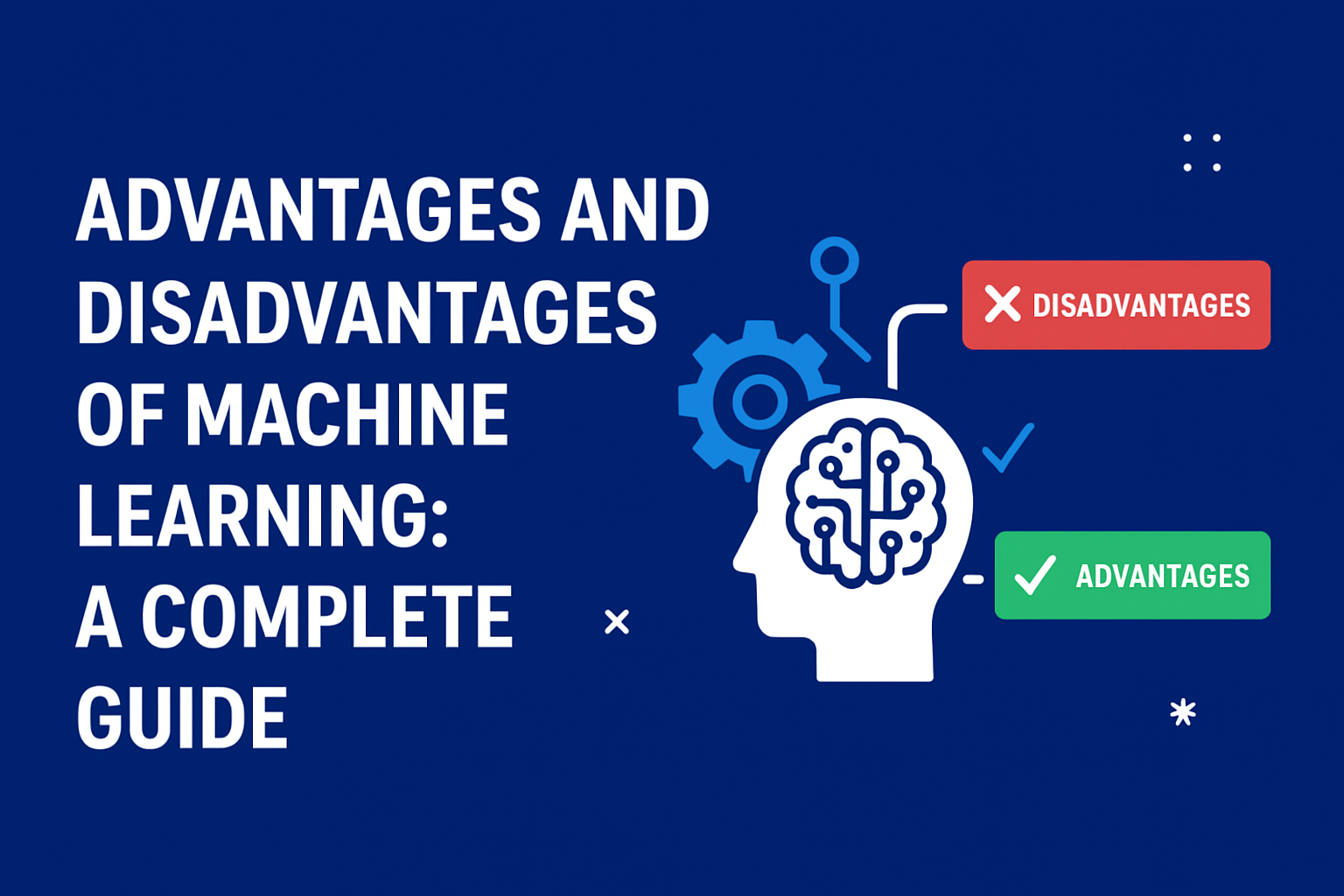Advantages and Disadvantages of Machine Learning: A Complete Guide

Machine learning (ML) has become one of the most transformative technologies in recent years, powering everything from personalized recommendations on Netflix to fraud detection in banking. While the benefits are undeniable, it’s equally important to understand its limitations. In this article, we’ll explore the advantages and disadvantages of machine learning so you can make informed decisions when applying it in your projects or business.
What is Machine Learning?
Machine learning is a subset of artificial intelligence (AI) that enables systems to learn from data and improve over time without being explicitly programmed. Instead of following pre-defined rules, ML algorithms analyze patterns and make predictions or decisions based on input data.
Advantages of Machine Learning
Here are the most significant advantages of machine learning that are transforming industries worldwide:
1. Automation of Tasks
Machine learning automates repetitive and complex tasks, reducing the need for manual intervention. This not only improves efficiency but also saves time and resources.
2. Continuous Improvement
ML models improve their accuracy over time as they are exposed to more data, making them more effective in predicting outcomes.
3. Handling Large Volumes of Data
Machine learning algorithms can process and analyze massive datasets faster and more accurately than humans, making it invaluable for big data applications.
4. Personalization
From e-commerce product recommendations to personalized learning platforms, ML enables tailored user experiences, boosting engagement and satisfaction.
5. Enhanced Decision-Making
Machine learning supports data-driven decision-making, helping businesses reduce guesswork and make informed choices backed by real-time insights.
6. Detection of Patterns and Trends
ML can identify hidden patterns in data that humans may overlook, which is crucial for fraud detection, healthcare diagnostics, and predictive maintenance.
Disadvantages of Machine Learning
While ML offers several benefits, there are also disadvantages of machine learning that cannot be ignored:
1. High Data Dependency
ML models require large volumes of high-quality data. Poor or insufficient data can lead to inaccurate predictions and unreliable results.
2. Complexity and Cost
Developing and deploying ML models can be expensive and time-consuming, requiring specialized skills and infrastructure.
3. Lack of Interpretability
Some ML algorithms, such as deep learning, act like “black boxes,” making it hard to explain how they arrive at specific decisions.
4. Bias in Predictions
If the training data contains biases, the ML model can replicate or even amplify those biases, leading to unfair or discriminatory results.
5. Security and Privacy Concerns
ML models are vulnerable to cyberattacks and can inadvertently leak sensitive information if not handled properly.
6. Risk of Overfitting
Overfitting occurs when a model learns the training data too well, performing poorly on new, unseen data.
Conclusion
Machine learning has revolutionized industries with its ability to automate processes, personalize experiences, and uncover valuable insights from data. However, it’s essential to recognize both the advantages and disadvantages of machine learning before integrating it into your operations. A balanced approach, leveraging its strengths while mitigating its weaknesses, can help you harness the true potential of ML.
By understanding the benefits and limitations, you can make better decisions, avoid common pitfalls, and ensure your ML applications deliver real value.








